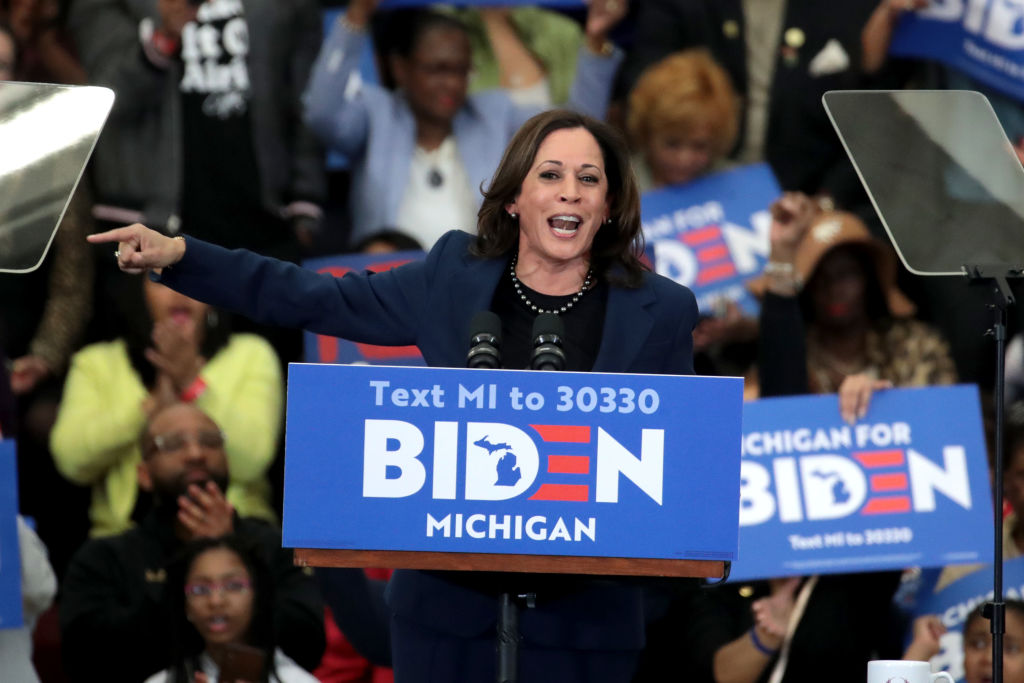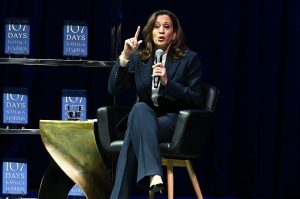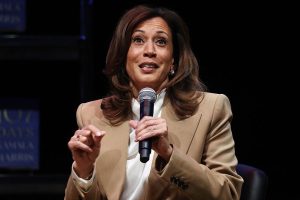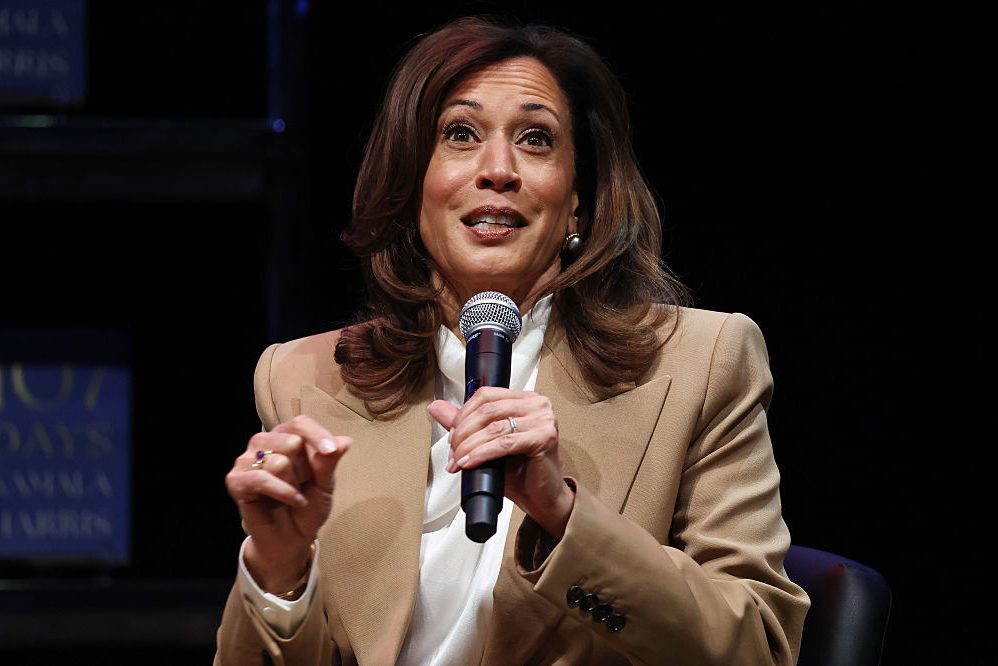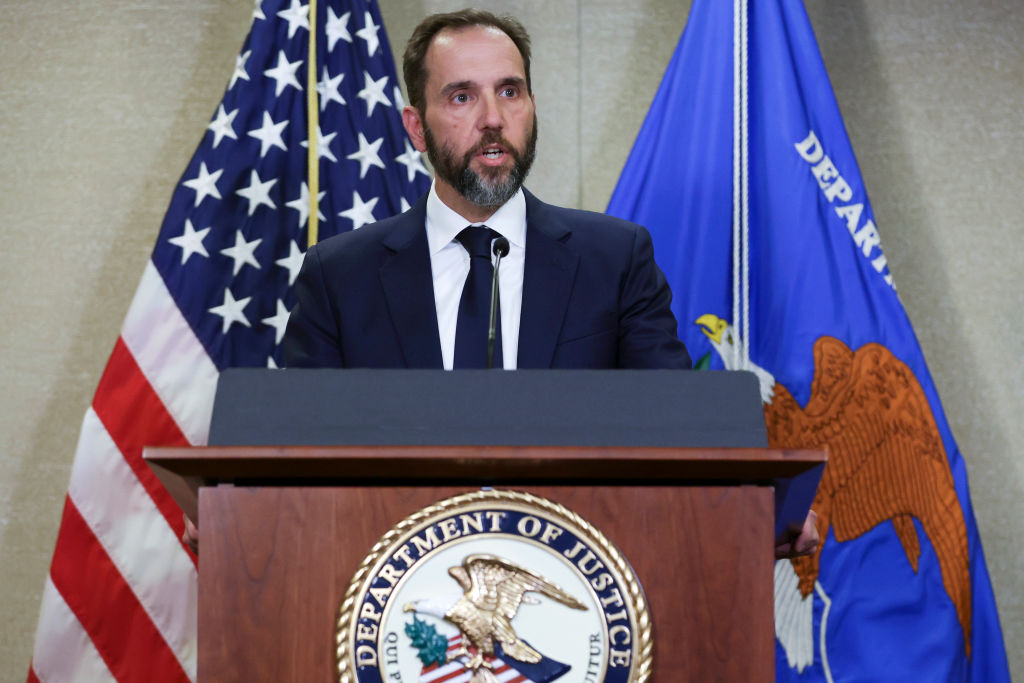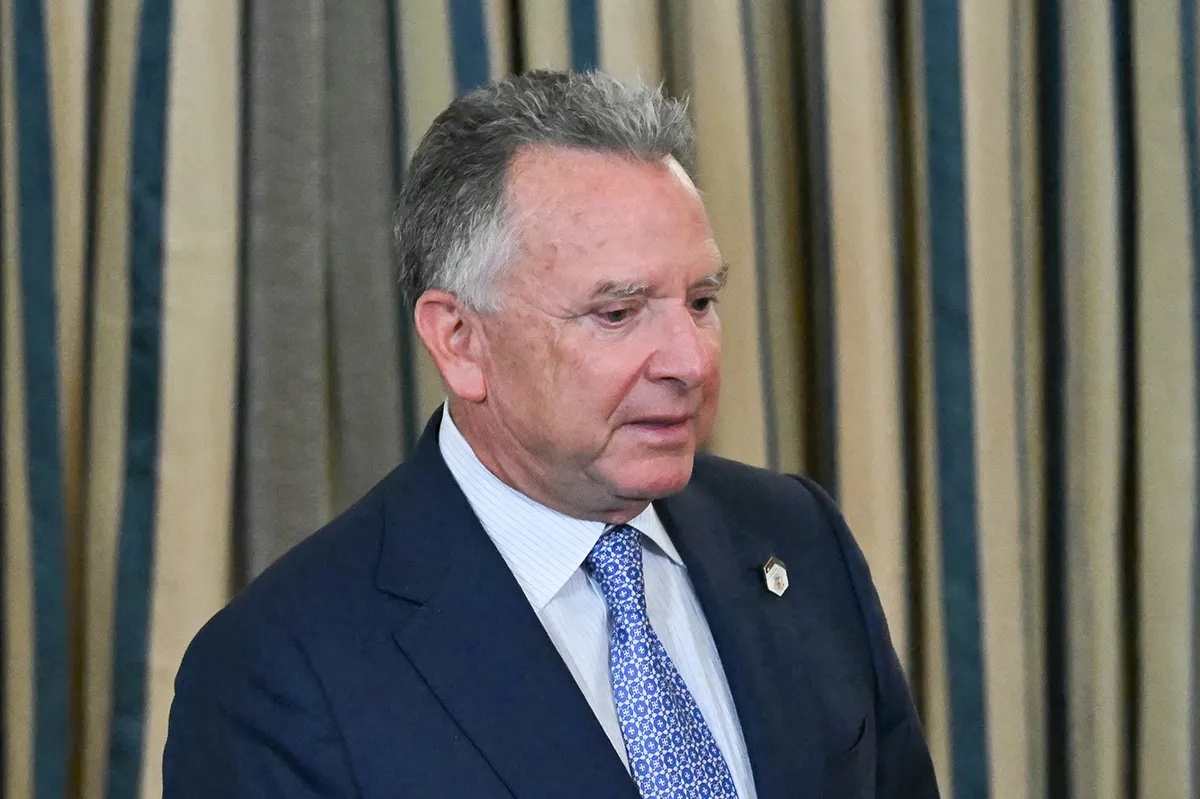Joe Biden needs a co-president. Not just a running mate, not just a potential vice president, but someone who will be president-in-waiting should Biden win in November — the month he turns 78.
The idea of Biden running for a second term in 2024 at the age of 81 is hard to take seriously. So far, this is something everybody knows but nobody is taking seriously enough.
The question of Biden’s current mental acuity has become a campaign issue, but even Democrats who believe Biden is up to the job of being president in 2020 will have a tough time arguing that he’d be fit to serve a second term.
In looking at the Democratic ticket this year, voters will in effect be asked to vote not just for a president but for a 2024 nominee as well.
Biden’s campaign is staked on the idea that America wants to turn back the clock and return to the pre-Trump idea of normal. The polls suggest that there’s plenty of appetite for this, and the older Americans who — along with black voters — secured the Democratic nomination for Biden might be especially open to reversing the flow of time.
Yet that’s hopeless: the 2020s are set to begin with a radically new relationship between the US and China, the world’s strongest military and economic powers, along with what may be the worst domestic economy since the Great Depression.
The Republican party has been living in the future for a dozen years now: Ron Paul’s populist libertarian revolt within the GOP in 2008, Sarah Palin’s place on John McCain’s presidential ticket that year, the Christian populist campaigns of Mike Huckabee and Rick Santorum in ’08 and ’12, and the Tea Party all signaled a move away from the ‘normal’ politics of the 1990s.
Barack Obama was a half-step into the future for Democrats: a new face on most of the same old policies, including war in the Middle East and a Mitt Romney-spawned healthcare plan.
Then the Democrats nominated Hillary Clinton, who retreated into 90s nostalgia and lost to Donald Trump, a man who represented a truly dramatic break with what had gone before. Now Biden is the second backward-looking Democratic nominee in as many elections, and the question to be answered by his pick of running mate has to be: what vision does Biden’s Democratic party have of the future — if any?
Nancy Pelosi (already 80) and Chuck Schumer (70 in November), the leading Democrats in Congress, have failed to reproduce, ideologically speaking. Young Democrats are Bernie Democrats — they were the voters who reliably supported him even as his campaign collapsed while Biden won primary after primary. A balanced ticket would call for a young Bernie as Biden’s running mate. There isn’t one available. Elizabeth Warren’s name in Sanders-activist circles is about as popular as Jill Stein’s is on MSNBC. Warren turns 71 next month; she’s hardly the person to rejuvenate a party desperate for plausible new leadership.
Alexandria Ocasio-Cortez is not eligible or qualified. The other contenders who are conventionally qualified don’t have any special appeal to the Sanderistas, and don’t imply a definite new direction for Democrats after Biden’s placeholder administration.
But they can be ranked on other criteria, notably what they add to the ticket’s Electoral College prospects. Kamala Harris, it might be hoped, would help turn out black voters across the country, reinforcing Biden’s already strong prospects in Pennsylvania. But that’s not very plausible: Harris’s presidential campaign was a dud and Biden has had no trouble turning out black voters on his own. California, Harris’s state, is a world away from the industrial Midwestern and Mid-Atlantic states that Biden needs to win.
Minnesota senator Amy Klobuchar outpolled Harris in the Democratic contests and has a Midwestern political pedigree. She also has a reputation for being prickly and hot-tempered, traits that would not be assets in a vice president and presumptive 2024 nominee. On the campaign trail, she might seem like a lively contrast to Mike Pence — Klobuchar usually seemed to be having fun during her presidential run, when she wasn’t unable to conceal her irritation at being outsmarted by Pete Buttigieg. Pence is nobody’s idea of fun, but he might also make her irritable in debate.
What does Klobuchar bring with her in terms of electoral votes? Minnesota only narrowly went to Clinton the last time around, but Biden needs to expand Clinton’s map if he’s going to win, not lock it in place.
The smarter play for the Midwest might be Michigan governor Gretchen Whitmer, whose state went to Trump in 2016 by barely more than 0.2 percent of the vote. Whitmer bested Republican Bill Schuette by nearly 10 points in her state’s 2018 gubernatorial match-up. Biden has been leading in polls of Michigan, but with the possibility that one of the state’s congressmen, Justin Amash, will also be on the ballot in November — as the Libertarian party’s presidential nominee — Biden might not want to risk a split in the anti-Trump vote causing him to lose the state. Whitmer would be insurance against that.
Gov. Whitmer’s response to COVID-19 has been especially heavy-handed, however. Polls in March showed the Michigan public backing her position. But how popular her lockdown politics will be in November is anyone’s guess. Does Biden want to place a bet?
Maybe President Trump will: it must cross his mind that he could blunt Biden’s appeal to women by putting a woman on the Republican ticket in place of Pence. Borderline NeverTrump Republicans would love to see Nikki Haley on the ticket. Trump’s base, which is by all indications hostile to lockdown politics, would be more energized by seeing South Dakota governor Kristi Noem as Trump’s running mate. Yet Trump, unlike Biden, doesn’t suffer from an enthusiasm problem with his own party — only some 24 percent of Democrats surveyed by ABC News and the Washington Post in late March were very enthusiastic about Biden, the lowest figure in the history of the ABC/Post poll. 53 percent of Republicans in the same poll were highly enthusiastic about Trump.
The successful presidential contenders of the last 20 years have all used the VP slot to compensate for inexperience. George W. Bush, a virgin to Washington, added the experienced Dick Cheney to his ticket. Barack Obama, who hadn’t yet finished his first term as a senator, chose the long-serving Biden as his running mate. And Trump picked Pence, whose credentials as a conventional conservative Christian Republican, governor, and former congressman were a balance for Trump’s radically new and different political resume and persona. An incumbent president doesn’t need anyone to lend him an imprimatur of experience, and Trump’s popularity with the GOP base is such that no backlash from replacing Pence seems likely. Yet a Trump VP switch would be presented by the media as a sign of a campaign in freefall. And losing Pence might mean a marginal loss in Christian and stalwart Republican support that could outweigh any gains among women. Still, with word that Trump is looking to bring Corey Lewandowski back for his re-election campaign, anything is possible.
Biden doesn’t need a running mate with experience. He needs someone who can plausibly represent the future of the Democratic party and who could be sworn in as president in January 2025 — or earlier, if the country’s oldest president should die or become incapacitated in office. Biden has preemptively narrowed the search for his running mate and the Democrats’ 2024 nominee to women only. Was it wise to exclude half the population — including such diverse young Democrats as Pete Buttigieg and Cory Booker — from any consideration in this far-reaching decision right from the start? Biden is only thinking about November, but his voters will have to think about the November election four years from now as well, when Biden will turn 82. Do even the 24 percent of Democrats who are enthusiastic about Biden now imagine that he’ll be on the ballot in 2024? If not, what woman are they prepared to pre-elect today? She needs to have electoral credibility to help Biden here and now. But she also needs to have the focus and creativity to lead like Franklin Roosevelt or Harry Truman if this decade continues going the way it’s begun. And whomever the Democrats pick, even if victorious this year and in 2024, will have to face Republican populism for a long time. The Sanders wing of the party was confident it could do that. The Clinton-Biden, Schumer-Pelosi wing? Though it might yet win an election, it’s already losing the future.



